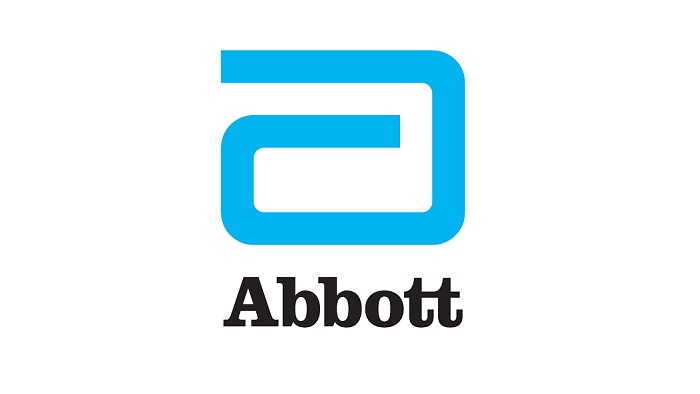Abbott announced the U.S. launch of Jot Dx™, the company’s latest insertable cardiac monitor (ICM). The Jot Dx™ ICM gives clinicians and hospitals control of how they manage the flow of information through a unique feature to view either all abnormal heart rhythm data or to simplify which irregular heart rhythms are recorded with a “key episodes” option. This technology allows for remote detection and improved diagnosis accuracy of cardiac arrythmia in patients. Jot Dx™ ICM is supported by SyncUP™, a personalized service that delivers one-on-one training and education to help patients get connected and stay connected to their ICM.
An arrhythmia is an abnormal heart rhythm that develops when disease or injury disrupts the heart’s electrical signals, causing the heart to beat erratically. As a result, arrhythmias can lead to symptoms such as palpitations, dizziness, shortness of breath or fainting. The most common arrhythmia is atrial fibrillation, or AFib, which is projected to impact more than half of the worldwide population by 2050.2
“Over the past year, there has been an increased focus on telehealth and connected care technology. This has provided access to more data, adding to the time needed to assess patients thoroughly,” said John Costello, D.O., Electrophysiology at The Heart House, Marlton, New Jersey. “With the Jot Dx key episodes option, the ability to distil information is a distinct, time-saving enhancement that helps care teams make important, life-saving clinical care decisions faster.”
Leveraging the Potential of Connected Care
To better help physicians diagnose their patients’ abnormal heart rhythms, Jot Dx™ ICM continuously monitors patient cardiac rhythms 24 hours a day, 7 days a week and connects directly to myMerlin™, a downloadable mobile app that transmits data in real-time to both the clinician and patient. For the first time in an ICM, Jot provides clinicians increased control over patient monitoring, with an option to toggle between viewing only three key episodes or all episodes depending on individual patient needs to make and accurate diagnosis. This functionality reduces overall data burden. For example, for every 100 patients, it can save clinic staff up to 120 hours per month in reviewing electromyogram (EGM) transmissions3 while also providing the flexibility needed to find hard-to-detect arrhythmias.
In addition to improving workflow for physicians, clinics and health systems monitoring patients with potential abnormal heart rhythms, Abbott is also improving how patients interact with their device. A key element in the setup of Jot Dx™ ICM and the myMerlin™ mobile app is the new SyncUP™ support service, which Abbott offers on select products as part of its connected care portfolio. With SyncUP™, an Abbott support expert will enroll a patient with a newly implanted device in the system, orient them through getting to know their new heart monitoring device and confirm connection to the myMerlin™ app.
SyncUP™ is designed to educate people about the technology from the comfort of home, which has been shown to increase information retention and encourage compliance4, and helps reduce in-clinic burden. Currently, the process to ensure a patient is connected is conducted in the healthcare facility directly following the device’s implant, which prolongs the stay for the patient. SyncUP™ also support patients with Abbott’s implantable defibrillator, Gallant™ ICD.
Once connected, clinicians can monitor patients remotely, allowing for identification of asymptomatic episodes, as well as patient-triggered transmissions, which can lead to earlier intervention. Remote monitoring can shorten the time for doctors to diagnosis and make a care decision, if needed.5,6
“Technology can be intimidating, particularly when your heart is relying on it,” said Heidi Hinrichs, divisional vice president of global clinical and regulatory for Abbott’s Cardiac Rhythm Management business. “With Jot Dx™ ICM, myMerlin™, SyncUP™ and our other technologies, we want people to feel supported, knowledgeable and confident when using them, and ultimately, in control of their care. We understand healthcare is not one-size-fits-all and have learned from the people who use our products that a patient-centric approach can lead to a more manageable heart health experience.”
Abbott myMerlin™
The myMerlin™ mobile app collects information from a patient’s heart device and sends it to their healthcare team. The app allows patients to engage more frequently with their healthcare team by providing access to transmission history and device performance, and the app can prompt patients to schedule their next appointment. The app also lets patients record symptoms when they are felt —making diagnosis easier than ever.
About Abbott
Abbott is a global healthcare leader that helps people live more fully at all stages of life. Our portfolio of life-changing technologies spans the spectrum of healthcare, with leading businesses and products in diagnostics, medical devices, nutritionals and branded generic medicines. Our 109,000 colleagues serve people in more than 160 countries.


















